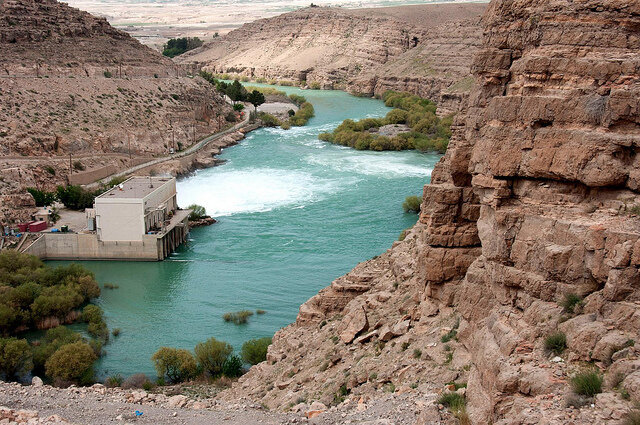Efforts underway to secure Hirmand water rights: Iran energy minister

TEHRAN – The Iranian Minister of Energy, Abbas Ali-Abadi, has emphasized his ministry’s determination to secure the Hirmand River’s water rights through diplomatic collaboration with neighboring Afghanistan.
Speaking during a visit to Chah-Nimeh No. 3 in northern Sistan-Baluchestan on Friday, Ali-Abadi outlined ongoing efforts to address the water needs of the region while pursuing a sustainable solution with Afghaninstan's interim government.
“Our priority is to work in close coordination with our neighboring country to resolve the issue of Hirmand River water rights effectively, and we will update the public on the outcomes of these efforts,” Ali-Abadi stated.
Highlighting the importance of ensuring water security for the drought-stricken Sistan-Baluchestan Province, the minister noted that multiple initiatives are already underway to address the water crisis. These projects aim to supply residents with stable and high-quality water resources.
Ali-Abadi further emphasized that negotiations with Afghan authorities over the Hirmand River are ongoing. “We are committed to advancing this matter through mutual cooperation,” he said, adding that the government is determined to resolve the issue for the benefit of local communities.
Reiterating his ministry's broader goals, the minister stressed the importance of water conservation in tandem with governmental efforts. “While the Ministry of Energy will spare no effort to alleviate the water shortages in Sistan-Baluchestan, all sectors must contribute by adopting water-saving measures to help mitigate the crisis,” he urged.
The Hirmand River, shared by Iran and Afghanistan, is a vital water source for the region. The equitable distribution of its water has long been a matter of concern, with Iran advocating for the enforcement of prior agreements on water rights.
Although a 1939 treaty was drafted to address water sharing, it was never ratified by Afghanistan, leading to protracted disputes. In 1973, the two nations agreed that Afghanistan would allow a flow of 26 cubic meters per second—equivalent to 820 million cubic meters annually—into Iran. However, political upheavals, including a 1973 coup in Afghanistan, prevented the agreement from being fully implemented.
Efforts to resolve the issue continued with a bilateral agreement in 2003, but Afghanistan has repeatedly failed to honor the treaty’s terms. This has exacerbated the situation, leaving Iran struggling to secure its rightful share of water.
Leave a Comment